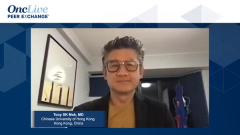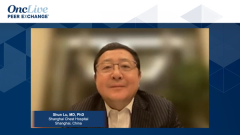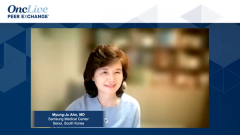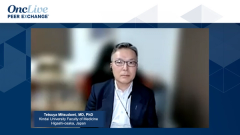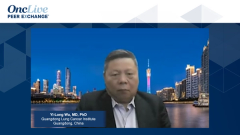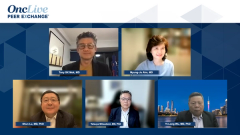
Considerations for Biomarker Testing in NSCLC: Gene Panel Size and Reimbursement
Shared insight on how comprehensive biomarker testing should be in non–small cell lung cancer, as well as what may or may not be reimbursed.
Episodes in this series

Transcript:
Tony S.K. Mok, MD: You touch on a very interesting point. At ASCO [American Society of Clinical Oncology Annual Meeting] this year, even the United States, the NGS [next-generation sequencing] pickup rate is not over 50%. What’s the NGS testing rate in advanced-stage lung cancer in China? In a big city, and a big center like yours, I imagine that it would be very high. But on average, a lot of patients are in the lesser so-called developed hospitals or state hospitals. Do they also get tested?
Yi-Long Wu, MD, PhD: Yeah. In China, NGS is very popular. But its approved only for the gene or the sister genes or the ADA genes. This means that if you test the genes you can the test only the 10 or the A for the genes. Personally, I like the bigger panel such as more than 100 genes, because we need to know which [INAUDIBLE] harbored the driver gene, and we are also to know the concurrent mutation. With this confirmation, we know how to influence the treatment that should be done with these different labels and the different strategies.
Tony S.K. Mok, MD: In reference to your interest in gene panel size, in Korea, what’s your preference on gene panel size? Do you like the bigger panel of hundreds of genes, or just focusing on the 10 genes that are relevant for non–small cell lung cancer?
Myung-Ju Ahn, MD: In Korea, we use a large panel, including more than 300 genes. One of the challenges is the long turnaround time for NGS. That’s why we don’t routinely use the NGS up front.
Tony S.K. Mok, MD: I see. And Tetsuya, in Japan, do you use the bigger panel? Oncomine is a bigger panel, right?
Tetsuya Mitsudomi, MD, PhD: Yeah, Oncomine has 46 genes, so it’s a midsize panel. That’s a component diagnostic of the many TKIs [tyrosine kinase inhibitors] for lung cancer. Oncomine is the most popular panel in Japan. But Japan has very strict rule in the connection between the testing and the drugs. Oncomine can be the test for some drugs. In another case, in the MET 14 skipping, comparing diagnostic for tepotinib is actually ArcherDX. It’s another panel. We cannot use Oncomine for MET. Also, cobimetinib is a foundational 1. It’s very strange; that’s a rarity.
Tony S.K. Mok, MD: Hold on a second. If I’ve got a patient who’s Oncomine positive for MET 14 skipping, they cannot receive tepotinib or cobimetinib until they have a foundation medicine or actual testing?
Tetsuya Mitsudomi, MD, PhD: Exactly.
Tony S.K. Mok, MD: Isn’t that a waste of resources? This is silly, don’t you think?
Tetsuya Mitsudomi, MD, PhD: I completely agree with you. The regulators here don’t allow us to use these drugs by Oncomine.
Myung-Ju Ahn, MD: It’s a similar situation in Korea.
Tetsuya Mitsudomi, MD, PhD: Really?
Myung-Ju Ahn, MD: The ROS1 FISH [fluorescence in situ hybridization] or NGS that’s ROS1-positive was not reimbursed. The RTP share is the only method to get a reimbursement. It’s very strange.
Tetsuya Mitsudomi, MD, PhD: Yeah, I agree.
Yi-Long Wu, MD, PhD: From the regulatory point of view, maybe we need to use the so-called the company’s [INAUDIBLE]. But in clinical practice, this is not so important. I wonder sometimes about erlotinib. The company diagnosis is the only 1, but in clinical practice, we could test the EGFR in so many panels and methods. We did not let the patient only for [INAUDIBLE] disease. In the near future, the so called a [INAUDIBLE].
Tony S.K. Mok, MD: It’s a little hypocritical. I’m sure that in Japan you can use any EGFR testing used to get the EGFR or TKI. But not with other [INAUDIBLE], right?
Tetsuya Mitsudomi, MD, PhD: No, EGFR is becoming very strict. We have to use the company diagnostic. There are several, but [INAUDIBLE] company.
Tony S.K. Mok, MD: That is interesting.
Transcript edited for clarity.


